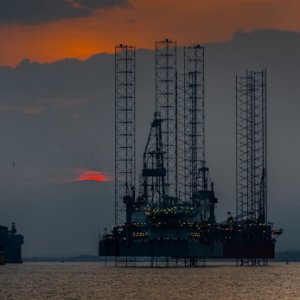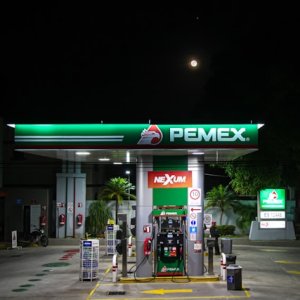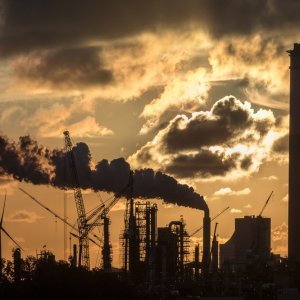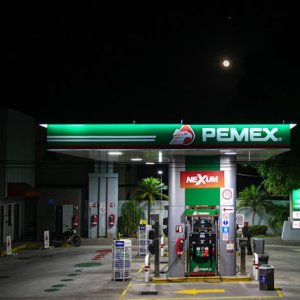Fuel Stations Ready to Tackle Challenges After Positive Year

STORY INLINE POST
Q: How would you assess the performance of the fuel sector in 2021 and what advancements did you see in economic and regulatory matters?
A: It was a positive year, especially given the complicated situation resulting from the pandemic. ONEXPO saw a recovery in volume and in prices. Oil prices increased significantly, which was reflected in our financial statements through additional income in terms of volume and price. In 2020, the COVD-19 pandemic forced us to stay afloat by converting our fixed costs to variables. In 2021, we had the opportunity to resume investing and reclaim those costs on the back of a better market to support our efforts. Also, new investments were developed in the oil and gas sector. Though it was a very positive year, we are still facing administrative silence when it comes to regulatory matters, which has generated an unfavorable impact on the industry. The Energy Regulation Commission (CRE) has not yet accelerated its activities and that has slowed down part of our economic activity, too.
Q: How has ONEXPO developed its relationship with institutions and regulatory bodies over the years?
A: In the many years that ONEXPO has been in the market, it has always maintained close communications with the regulator. During the past year, we had great work meetings. We also recognize the openness to dialogue of Mexico’s Minister of Energy Rocío Nahle, with whom ONEXPO has had productive conversations. This dialogue allowed us to consolidate our position nationally and to remain recognized as the most important association of fuel entrepreneurs in Mexico.
Q: How has the recent refusal of some service stations to submit themselves to PROFECO’s verification affected ONEXPO’s relationship with the consumer protection organization?
A: ONEXPO has tried to eradicate this trend of refusing verification. Gas station entrepreneurs must improve their openness to review. The number of service stations that are denied permits or closed are insignificant compared to the number of stations that PROFECO periodically reviews without encountering any issue at all.
ONEXPO has a very close relationship with PROFECO. It has also declared that the number of stations where malpractices were found is rather insignificant compared to the total number of service stations operating successfully. ONEXPO has never defended and will never defend companies involved in illegal practices. Nevertheless, there are other, sometimes unknown factors that must be taken into account when judging a service station’s decision to not complete a PROFECO verification.
Q: In what ways has the sector’s competition dynamic changed as a result of PROFECO’s weekly announcements?
A: This important practice, in which PROFECO announces the different fuel prices across the country, was established so that the consumer has a supporting tool to help decide where they should purchase their fuel. However, the practice has room for improvement because it merely shows the least and most expensive prices across the board. There are other factors that should be considered, such as transportation costs. For these and other reasons, fuel prices are simply not the same in Veracruz as in Sonora. The practice has not changed how prices are determined, after all. Still, market participants have the responsibility to set the fuel prices no higher than the current inflation rate requires.
Q: How has ONEXPO built its relationship with PEMEX over time?
A: Historically, ONEXPO has had a very close relation with PEMEX. The two parties established collaboration agreements many years ago, which are still active today. Once the market opened on the back of the 2014 Energy Reform and PEMEX lost part of its market to new private players, our dialogue with the NOC remained strong. We have even reinforced our agreements.
Q: What are some of the main challenges the downstream industry must overcome?
A: Mexico needs strong infrastructure development. Public and private entities need to be able to contribute to the country’s energy security. Once we reach a high level of development, the downstream sector can become more efficient, the savings from which can translate to lower prices for customers. We are facilitating this process as a sector. Fortunately, Mexico’s fuel storage capacity has already doubled in recent years as a result of an investment boom. The challenge we face is still significant because we need more fuel terminals. Nevertheless, the biggest challenge for 2022 will be how we define new concepts such as temporary storage and hydrocarbons transfers. As market participants, we must keep investing even if we face hurdles such as slow permitting.
Q: What are ONEXPO’s goals for 2022?
A: 2022 is a crucial year for ONEXPO, as we will change the organization’s Board of Directors. Therefore, ONEXPO’s first objective is to replace and renew its leadership successfully. We also aim to reinforce our four key values: unity, recognition, innovation and awareness. ONEXPO will remain a key actor in fostering the sector’s corporate, environmental and social responsibilities.
When the Dos Bocas refinery is finished, Mexico will still be dependent on imports for the time being. That is why we must rely on private initiatives to invest in and facilitate the necessary fuel storage capacity. Finally, ONEXPO aspires to build a market with a great diversity of supply to retail to customers.
Organización Nacional de Expendedores de Petróleo (ONEXPO) is the largest Mexican association of fuel companies, responsible for representing the industry in its interactions with the government.








 By Pedro Alcalá | Senior Journalist & Industry Analyst -
Tue, 05/03/2022 - 15:42
By Pedro Alcalá | Senior Journalist & Industry Analyst -
Tue, 05/03/2022 - 15:42















